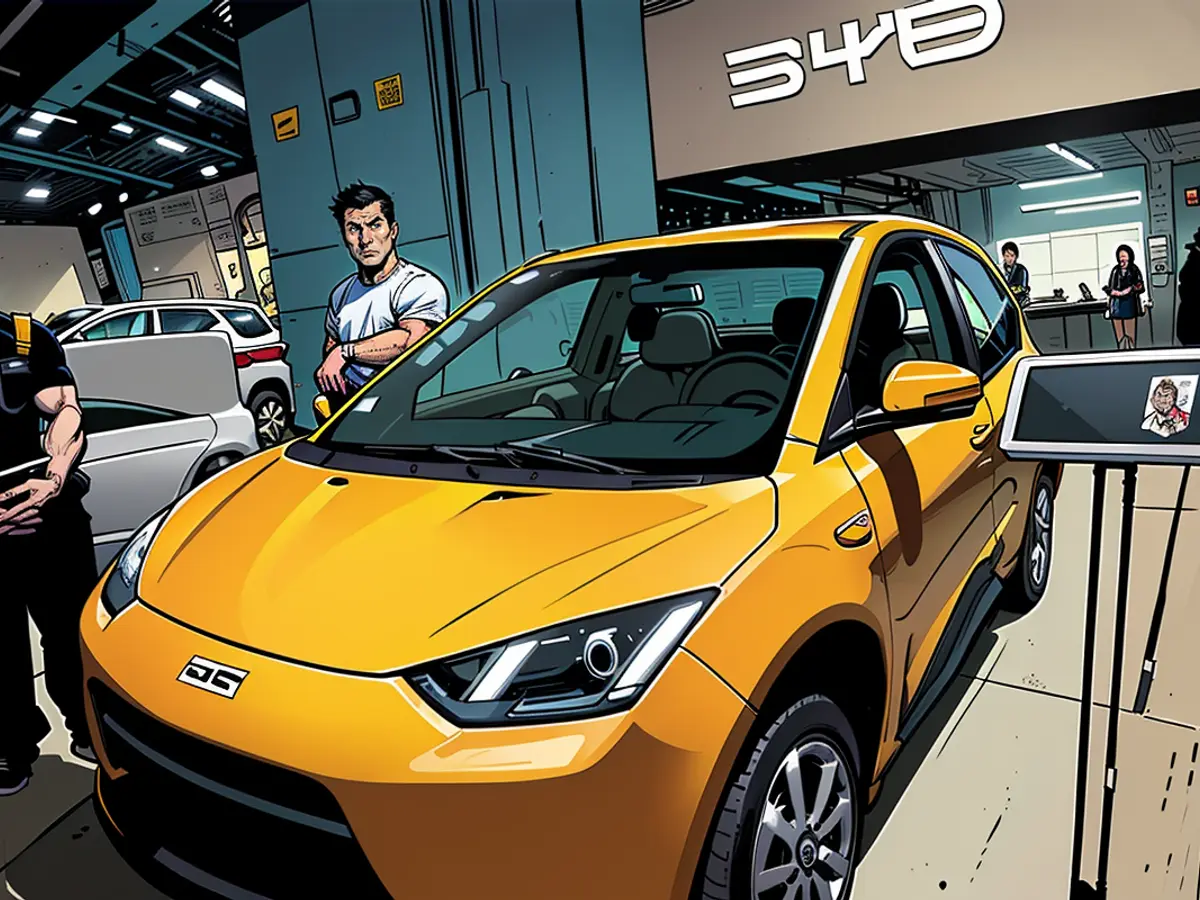EU spared Chinese electric vehicle manufacturer from retroactive tariffs
The Chinese electric vehicle manufacturer's vehicle sales are skyrocketing. However, the EU is issuing warnings and potentially threatening future and retroactive tariffs. Surprisingly, the EU Commission is now abandoning the idea of retroactive tariffs. As a result, Chinese brands like BYD, Geely, and others might not need to dig as deeply into their pockets as previously anticipated.
The EU will not impose preliminary extra tariffs on Chinese electric vehicles, contrary to initial plans. Initially, it was proposed that retroactive high compensatory tariffs of up to 37.6% would be levied on certain cases due to electric vehicles from China benefiting from competition-disrupting subsidies and posing a threat to the EU industry. However, the EU Commission has stated that the legal requirements for the retroactive collection of tariffs are not met.
According to an EU Commission official, no substantial harm to EU companies has been proven yet. At present, there is only the risk of harm, as demonstrated in recent times.
The EU Commission accuses China of providing illegal subsidies to its manufacturers and fears harm to European providers such as company closures or layoffs. However, negotiations with Beijing are still underway to avoid tariffs, according to EU Commission employees. No substantial progress has been made so far. Instead, China took the matter to the World Trade Organization (WTO) at the beginning of August.
Chinese manufacturers sell an increasing number of electric vehicles
EU Commission President Ursula von der Leyen began the investigation due to "cheap Chinese electric vehicles flooding world markets." Sales significantly increased last year: According to the US think tank Atlantic Council, they rose globally by 70% to a value of 34.1 billion dollars (around 31.2 billion euros). Almost 40% of these electric vehicles went to the EU.
The Chinese Chamber of Commerce in the EU (CCCEU) strongly criticized the proposed tariffs and accused the commission of a "protectionist approach." There is no solid proof that electric vehicles from China are harming European manufacturers, the chamber argued.
Adjusted tariff rates
The EU Commission also announced slight adjustments to the tariff rates. They were generally reduced. Specifically, for the manufacturer BYD, a provisional tariff of 17.4% was proposed, for Geely 19.9%, and for SAIC 37.6%. These rates have been reduced to 17%, 19.3%, and 36.3%, respectively. Tesla will be charged an individual tariff rate of 9%. Companies cooperating with the EU will be charged 21.3%, while companies not cooperating will be subject to the maximum rate of 36.3%.
The exact tariff rate depends on the subsidies each company receives. Geely manufactures the electric Smart models #1 and #3, as well as the Volvo EX30. SAIC produces the popular MG4 in Germany, which ranked second among electric vehicles in registration statistics in May, just behind the VW ID.3.
A BMW-Great Wall Motors joint venture in China has now been included in the circle of cooperating companies, according to BMW, and is subject to a lower tariff rate. BMW described this as a logical step. In principle, BMW, along with the Association of the German Automotive Industry (VDA), views tariffs on electric vehicles from China unfavorably. Chancellor Olaf Scholz is also skeptical. However, Economics Minister Robert Habeck has shown understanding for the Brussels move, as have other industry associations. According to the VDA, this measure further increases the risk of a global trade conflict. The trade measure is not conducive to strengthening the competitiveness of the European automotive industry.
Final Decision by End of October
The final decision on whether tariffs will be imposed will be made by the end of October. However, the Commission must first obtain approval from the 27 EU member states. If a majority opposes it, the Commission cannot impose the countervailing duty. To override the tariffs, a qualified majority of 15 EU states, representing 65% of the European population, is required. If tariffs are imposed, they will be in effect for an initial period of five years. Efforts are also being made to find a diplomatic solution with Beijing.
However, automakers and other affected parties now have the opportunity to request hearings with the Commission and submit statements within ten days. The Commission will then review these and present its proposal for a final decision to the member states.
The EU Commission's decision to not impose preliminary extra tariffs on Chinese electric vehicles is due to the lack of meeting the legal requirements for retroactive collection of tariffs, as these subsidies do not cause substantial harm to EU companies yet. Despite this, the Chinese manufacturers might still benefit from reduced tariff rates, as seen in the case of BMW's joint venture in China.








